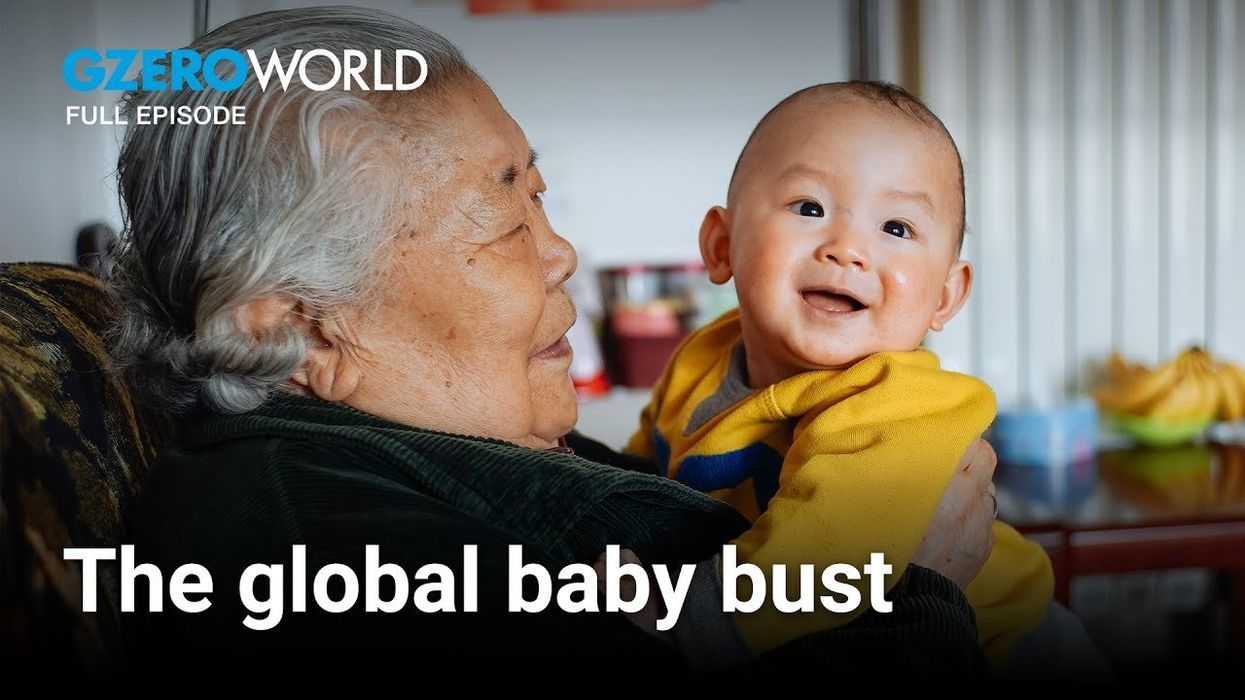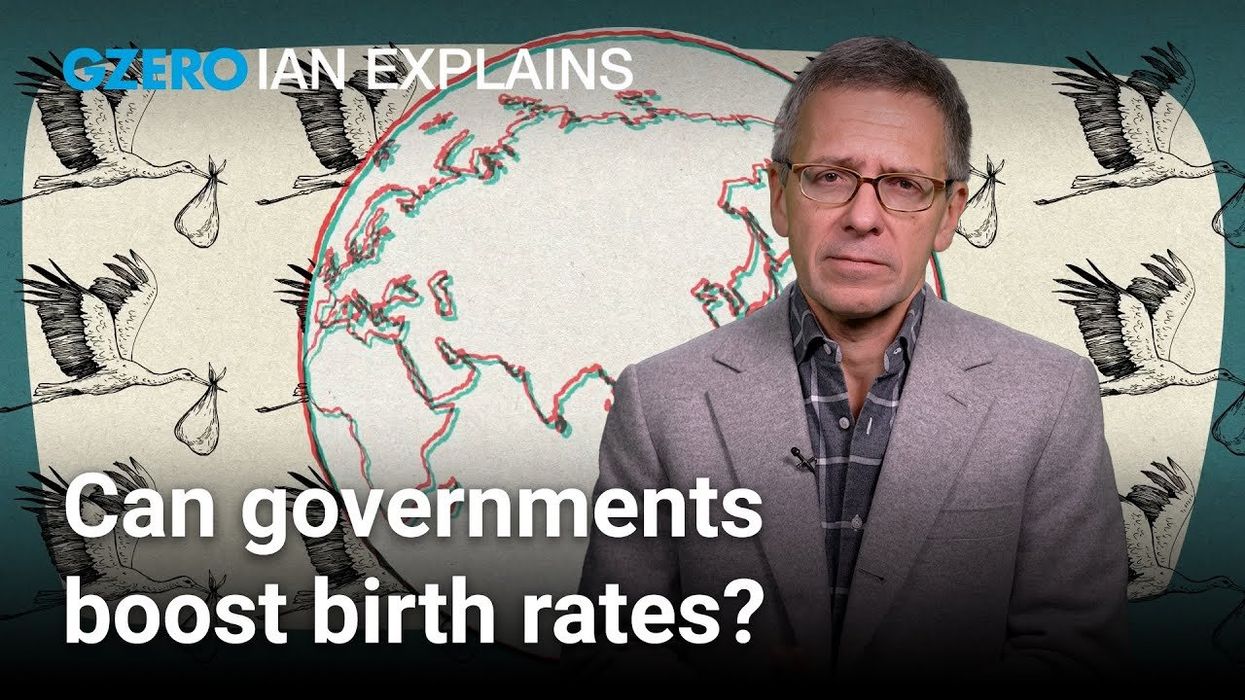GZERO World with Ian Bremmer
Why the world is facing a population crisis
On GZERO World, Ian Bremmer sits down with Jennifer Sciubba to explore a looming global crisis: population collapse. With fertility rates below replacement levels in two-thirds of the world, what does this mean for the future of work, healthcare, and retirement systems? In the US, Vice President-Elect JD Vance and Elon Musk are already sounding the alarm, the latter saying it's “a much bigger risk” to civilization than global warming. Can governments do anything to stop it?
Nov 18, 2024




